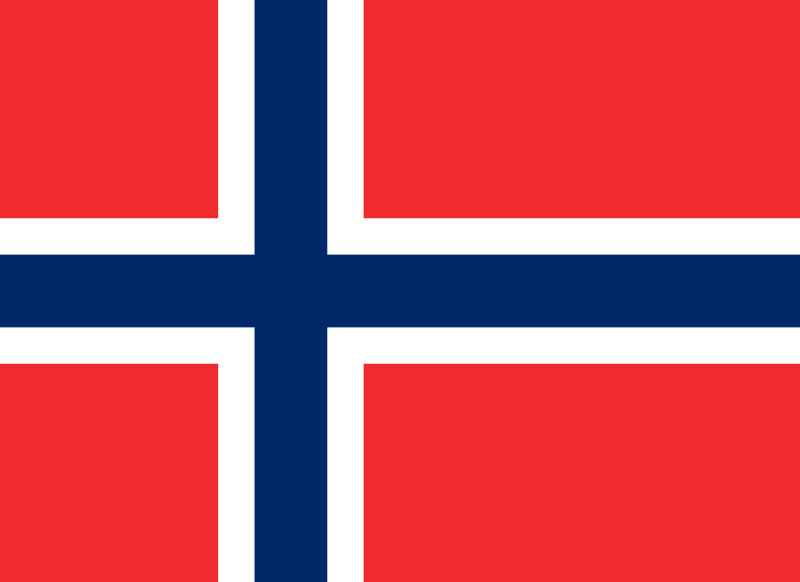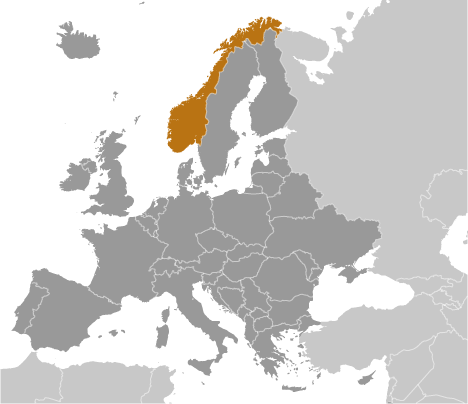HISTORICAL BACKGROUND
Article 100 of the 1814 Constitution was amended in October 2004 to include a specific right of access to access documents and attend court proceedings and meetings. The changes were recommended by the Governmental Commission on Freedom of Expression.
(1) The new Article 100(5) now states:
Everyone has a right of access to the documents of the State and of the municipal administration and a right to be present at sittings of the courts and of administrative bodies elected by the people. Exceptions may be laid down in law in order to protect personal data security and other weighty reasons.
The
Freedom of Information Act of 1970 provides for any person to have a broad right of access to official documents held by public authorities.
(2) Official documents are defined as information which is recorded and can be listened to, displayed or transferred and which is either created by the authority and dispatched or has been received by the authority. All records are indexed at the time of creation or receipt and some ministries make the electronic indexes available on the Internet or through e-mail.
Requests can be made in any form including anonymously and must be responded to immediately. Internal guidelines issued by the Ministry of Justice say that requests should be responded to in three days. The Ombudsman in 2000 ruled, "It should be possible to decide most disclosure requests the same day or at least in the course of one to three working days, provided that no special, practical difficulties were involved."
(3) Release may be delayed, "if the documents then available give a directly misleading impression of the case and that public disclosure could therefore be detrimental to obvious public or private interests."
There is a broad exemption for internal documents when the agency has not completed its handling of the case unless the agency has dispatched the document. Documents are also exempt from release if they are made secret by another law or if they refer to national security, national defense or international relations, financial management, the minutes of the Council of State, appointments or protections in the civil service, regulatory or control measures, test answers, annual fiscal budgets or long-term budgets, and photographs of persons entered in a personal data register.
In 2001, the Parliament amended the act to allow applicants to civil service positions and promotions to refuse consent to have their names disclosed. The Ombudsman criticized the government in his 2001, 2002 and 2003 reports on the implementation of the amendment as bodies were refusing in many cases to disclose any names or consider the public interest in high government positions. In 2003, he stated "it would appear that the administration is practicing the provision in a more restrictive manner than appears to be the intention of the lawmaker."
If access is denied, individuals can appeal to a higher authority and then to the Storting's
Ombudsman for Public Administration or a court. The Ombudsman's decisions are not binding but are generally followed.
(4) There have been very few court cases.
The Ombudsman conducted a systematic review of FOI practices in 2001 and stated in his annual report that:
More than 30 years have passed since the Freedom of Information Act was passed. However, disclosure complaints show that there is room for improvement in application of the law in practice. Work to ensure that extended freedom of information is routinely considered is still important and must continuously be done to achieve a more favourable attitude towards extended disclosure.
The government released a white paper in April 1998 proposing changes in the law.
(5) These include changing the subject of the request to information from documents, limiting the internal documents exemption, and making the law consistent with European Union requirements on access to environmental information. In October 2004, the government announced that it was planning to introduce a bill to replace the Act with a new law that "provides for greater transparency than the current Freedom of Information Act."
(6) A bill was introduced in 2005.
Norway signed the Aarhus Convention in June 1998 and ratified it in May 2003. The
Environmental Information Act was approved in May 2003.
(7)
The 1998
Security Act sets rules on classification of information.
(8) It creates four levels of classification and requires that information cannot be classified for more than 30 years. The National Security Authority enforces the Act. Starting in 1988, Norway began releasing en mass most documents over 30 years old.
(9) The Act on Defence Secrets prohibits the disclosing of military secrets by government officials and also the collection (sketches, photographs and notes) and disclosure of secrets by others including journalists.
(10) Articles 90 and 91 of the Criminal Code criminalize the disclosure of secrets. Imprisonment can be up to ten years.
The
Personal Data Act allows individuals to access and correct files containing personal information about themselves held by public and private bodies.
(11) It is overseen and enforced by the
Datatilsynet (The Data Inspectorate).
(12)
The Archives Act of 1992 sets a thirty years rule for the release of information.
(13) A new Archives Act sets rules for the collection and registration of documents.
(14)
The Municipalities Act of 25 September 1992 requires that meetings of local governments are open unless subject to a statutory duty of confidentiality.
2004 freedominfo.org Global Survey Results - Norway
NOTES
See
NOU 1999: 27.
Act of 19 June 1970 relating to public access to documents in the public administration (lov om offentlighet i forvaltningen av 19 juni 1970 nr 69). Amended by Act No. 47 of 11 June 1982 and Act no. 86 of 17 December 1982 and Act of 10 January 1997 No. 7.
http://www.ub.uio.no/ujur/ulovdata/lov-19700619-069-eng.pdf Update
Case 2000-0400 in Sivilombudsmannen, The Parliamentary Ombudsman - Norway Annual Report 2000.
Homepage:
http://www.sivilombudsmannen.no/eng/statisk/som.html
See Fredrik Sejersted, Norway: The Act on Public Access to Documents: Current Frustrations and Proposals for Reform, European Public Law Journal, Vol 5, No. 1, 1999.
The Speech from the Throne by his Majesty the King on the Occasion of the Opening of the 149th Session of the Storting, 2 October 2004.
Act No. 31 of 9 May 2003 relating to environmental information.
Act of 20 March 1998 No. 10 relating to Protective Security Services (the Security Act).
For information generally on national security issues in Norway and the previous system of classification, see Nils Peter Gleditsch, Freedom of Expression, Freedom of Information and National Security: The Case of Norway, in Security and Liberty: National Security, Freedom of Expression and Access to Information (Coliver et al, Ed), Martinus Nijhoff Publishers.
Lov nr. 10 om forebyggende sikkerhetstjeneste, 20 March 1998.
http://www.lovdata.no/all/nl-19980320-010.html
Act of 14 April 2000 No. 31 relating to the processing of personal data (Personal Data Act).
http://www.datatilsynet.no/lov/loven/poleng.html
Homepage:
http://www.datatilsynet.no/
Archives Act of 4 December 1992 No. 126.
See COE Report, p.214.





















